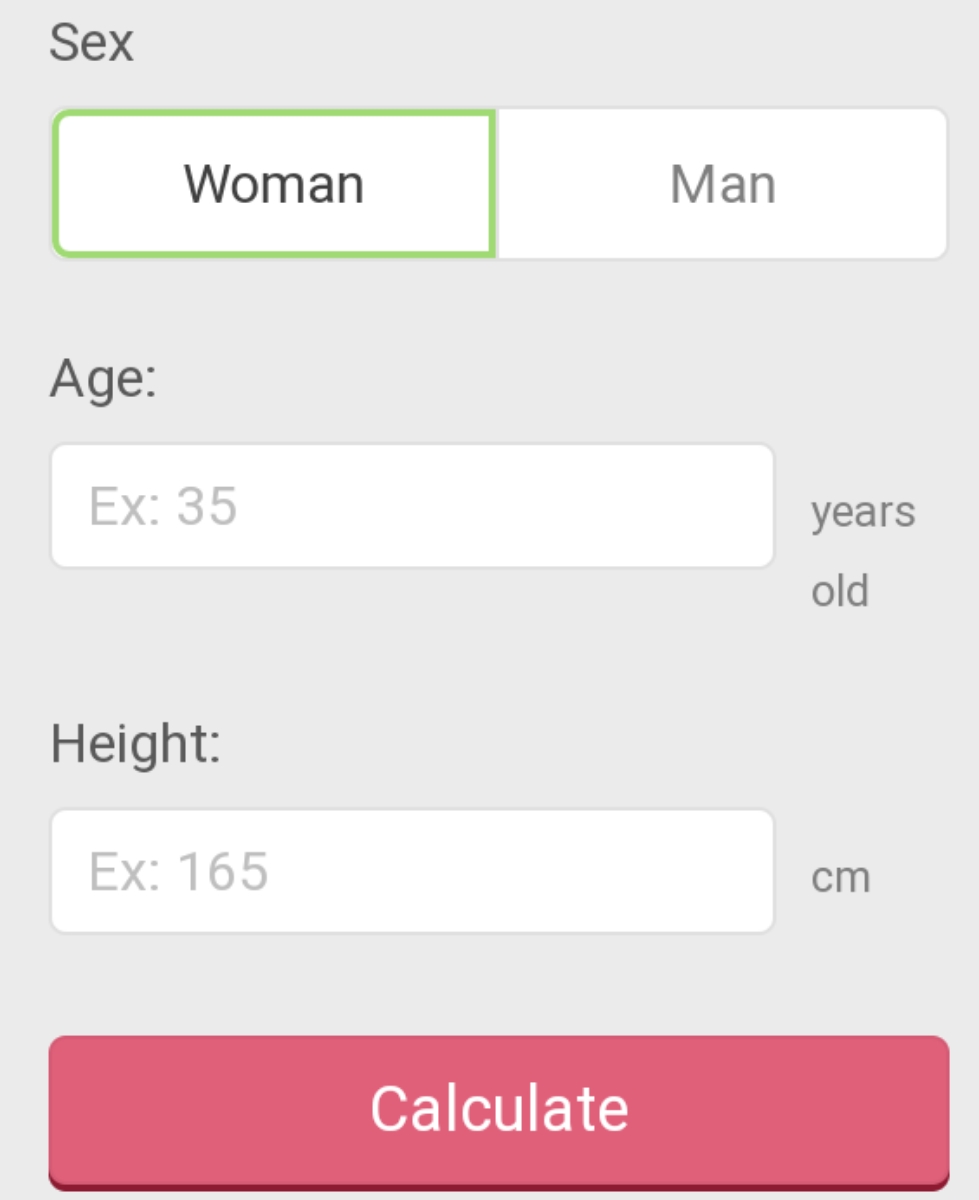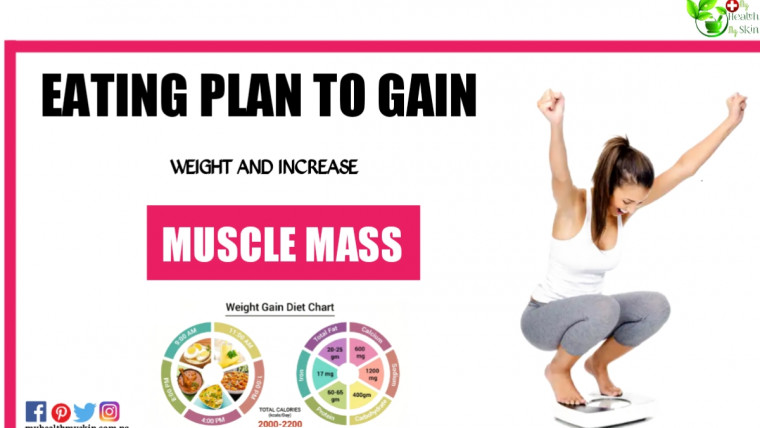In today’s post we’ll be talking about 3 days gain weight meal plan menu, how to gain muscle, 6 Tips to gain healthy weight and what not to eat in other to gain weight.
In the fattening diet, you should consume more calories than you spend, it is recommended to eat every 3 hours, avoiding skipping meals, and adding caloric foods that are healthy and nutritious at the same time, such as olive oil, fruit shake, oats, avocados and nuts.
It is important to remember that even on diets with the objective of gaining weight, you should not increase the intake of processed foods rich in sugar and fat, such as coxinha, hamburger, French fries or soda.
These foods are rich in sugar and saturated fats, which favor an increase in body fat and the risk of suffering heart problems due to increased cholesterol and triglycerides.
To find out how much you need to gain weight, see what your ideal weight is using the following calculator:

This calculator helps you find out how many pounds you need to gain weight, but it is not suitable for children, pregnant women, elderly people and athletes, as it does not differentiate the amount of muscle and fat present in the body.
6 Tips to gain healthy weight
Getting healthy is more than just eating more food or eating high-calorie foods. Below, we indicate 6 tips that are essential for anyone trying to gain weight in a healthy way:
1. Eat every 3 hours
Eating every 3 hours is important to increase the consumption of calories throughout the day and promote weight gain, as it is recommended to eat more calories than the body uses.
In addition, you must maintain a good daily balance of calories from carbohydrates, proteins and fats, as this favors muscle mass gain.
For this reason, it is important not to skip meals so as not to impair the supply of nutrients to the body and to maintain adequate levels of glucose and amino acids in the blood, which favors muscle recovery and growth.
2. Include protein in every meal
Including protein in all meals of the day makes the levels of amino acids in the blood remain constant throughout the day, favoring a good muscle recovery throughout the training days.
Proteins are present in foods such as meat, chicken, fish, eggs, cheese and yoghurt, making it important to make snacks with efficient combinations such as a chicken and cheese sandwich with whole grain bread or toast with cheese and yoghurt.
3. Consume good fats
Food sources of good fats such as nuts, peanuts, avocados, coconuts, oil and seeds are great options to increase the calories of the low-volume diet. Furthermore, these fats also help to gain muscle mass and do not encourage fat gain in the body.
So, some examples of how to use these foods are adding peanut butter to bread or fruit smoothie, eating some nuts in snacks, adding 1 tablespoon coconut to yogurt and making avocado smoothies in the snack.
4. Eat at least 3 fruits a day
Consuming at least 3 fruits a day and adding vegetable salads at lunch and dinner helps to increase the amount of vitamins and minerals in the diet, which are essential for the proper functioning of the metabolism and the gain of muscle mass.
Fruits can be consumed fresh or in the form of juices or smoothies, and can be added to snacks or as a dessert for lunch and dinner.
5. Drink at least 2.5 L of water a day
Drinking plenty of water and staying well hydrated is essential for gaining muscle mass, as hypertrophy, which is the increase in muscle cell size, only happens if the cells have enough water to increase their volume.
Thus, it is important to be aware and account for the daily consumption of water, remembering that artificial soft drinks and juices do not count as liquids for the body. In addition, it is important that water is consumed between meals, because if it is done with food, there may be changes in the digestive process.
6. Perform physical activity
To ensure that extra calories are turned into muscle rather than fat, it’s important to engage in physical activity 3 to 5 times a week, especially weight training and non-aerobic exercises. The ideal is to consult a physical education professional so that a training plan suited to your needs and goals is indicated.
Gain weight meal plan menu
The following table provides an example of a 3-day gain weight meal plan menu:
| Snack | Day 1 | Day 2 | Day 3 |
| Breakfast | 1 cup of coffee with milk + wholemeal sandwich with lettuce, tomato, cheese and egg + 1 medium apple | 1 cup of milk with cocoa + 1 tapioca with chicken and cheese + 1 tangerine | 1 glass of juice + 2 eggs and chicken omelet |
| Morning snack | 6 wholegrain crackers with peanut butter + 1 handful of almonds | Wholemeal sandwich with two tablespoons of avocado and egg + 1 banana | Oatmeal with fruit + 1 handful of dried fruit |
| Lunch dinner | Chicken stroganoff with rice and black beans + coleslaw with carrots seasoned with yogurt sauce with cilantro + 1 orange | Pasta with tuna, olives, corn and cherry tomatoes + raw lettuce salad with carrots seasoned with 1 teaspoon of oil + 1 slice of melon | Meatballs with tomato sauce, mashed potatoes and broccoli gratin with cheese and seasoned with oil |
| Afternoon snack | 1 tapioca with chicken and cheese + 1 pear | Yogurt with granola + 3 toasts with cheese | Avocado smoothie with papaya + 2 tablespoons of oats + 1 tablespoon of chia seeds (shake) |
It is important to go to a nutritionist so that an individualized eating plan can be given, as the amount of food varies according to age, sex, physical activity and health history. In addition, if necessary, the nutritionist can recommend the use of vitamins or nutritional supplement.
What not to eat
It is important that weight gain happens due to a varied and balanced diet, avoiding the consumption of processed foods rich in sugar or saturated fats. Some of these foods are snacks, sausages, bacon, mayonnaise, sauces, sweets, soft drinks, juices, cookies, cakes, fast food, fried foods, among others.
The consumption of these types of foods can favor weight gain due to the accumulation of fat in the body and not as a result of increased muscle mass, which in the long term can bring various health complications.
How long can it take to gain weight?
The average time it takes to gain muscle mass and gain weight is approximately 6 months, however in 3 months you can already see some changes. However, this varies from person to person, as it depends on the diet and whether the person performs physical activity that favors muscle growth. Know how long it takes you to gain muscle mass.
In additional, weight gain should happen due to increased muscle mass, which can be achieved through a balanced diet and regular physical activity, keeping the body defined and healthy.







